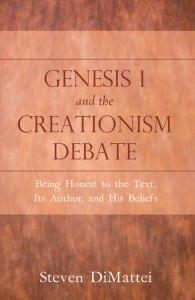So what does the Bible itself tell us about its compositional nature? We are now able to respond objectively to this question:
The Bible is a collection of ancient texts and traditions.
Granted, this does not yet tell us much, but it is an objective starting point and one that can readily be accepted by Jews and Christians of various persuasions, and even agnostics and atheists. Indeed, there is not much here to dispute. A glance at the Bible’s table of contents would only confirm our initial assessment: the Bible is in fact a compilation of other books, a book composed of other books. In other words, the Bible is a composite text, a text composed out of earlier texts and traditions.
This very fact presents us with a bit of an irony. The Bible, a word which literally means “Book,” is actually no book at all, but rather a collection of sixty-six different books, or scrolls and codices to be exact (Hebrew “books” and Christian “books” respectively)—all of which once existed independently and were variously written over a period of roughly one-thousand years by different authors, for different audiences, and to address ever-changing historical needs, concerns, and beliefs. Thus, in a very specific sense the “Bible” or “Book” is merely a term, indeed laden with meaning, that was applied to a collection of earlier texts (scrolls and codices) by, and for, a later generation of readers who sought to address the needs and concerns of their own historical circumstances. Yet the Bible is also, perhaps even more so, these ancient scrolls and codices themselves, which are now bookended together under the label “the Book.”
This brings us to the crux of the matter. How is it that a collection of diverse and variously written scrolls (and later codices) later became labeled “the Book”? How, when, and why did this happen? More importantly, how does the label “the Bible,” “the Book,” affect the way we understand—or, as the case may be, misunderstand—what these once separate and independent scrolls and codices are, or were, in fact? Furthermore, is this (mis)understanding and reading at variance with the intents and purposes of the many, once independent, scrolls and codices that now make up this so-called “Book”? In other words, is there a difference, even discrepancy, between the “Bible,” i.e., what this term implies, even imposes, as far as an interpretive framework onto this collection of scrolls and codices, and the actual scrolls and codices themselves, most of which were written earlier, independently, and as we shall see, in competition with one another?
to be continued….





